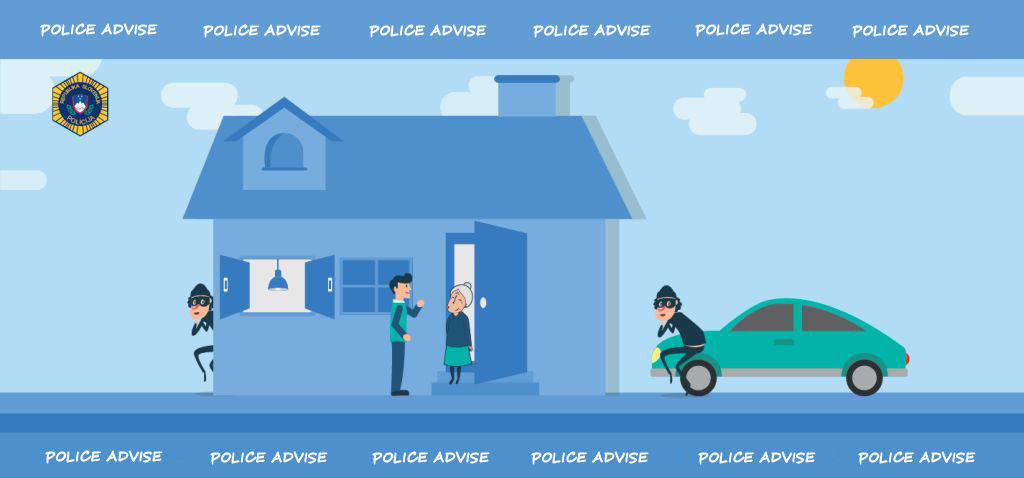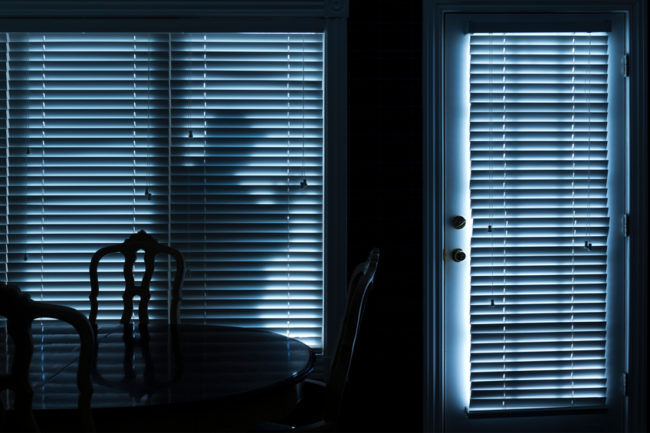Police officers often deal with bold thefts from residential houses, which are carried out in a very sophisticated and cunning way, deceiving the victims to the point that it takes some time before they realise they have been robbed.
Since people, usually senior citizens, are still not careful or attentive to strangers who come to their homes and speak to them, a few warnings will not be superfluous - below.

When such acts are reported to the police, the problem is that the victims only realize that they have been robbed after some time, for example several hours. They are also not able to describe the perpetrators well, as they have established a friendly and trusting relationship with the victim. In addition, by the time the victims do notice that they have been robbed, in most cases they already "clean up" the place where the perpetrators were operating, thus changing the scene of the crime and destroying possible traces.
Citizens are advised to keep their unannounced "visitors" under control at all times and not to invite them into their homes unnecessarily. When leaving home, even if they "just step around the corner", they should always lock the house and take the key with them.
If people are posing as repairmen, contractors, etc., we advise them to always ask for an identification card or work order. At the same time, they should also pay attention to the appearance of the persons (their clothes, speech, any peculiarities) and to the vehicle in which these persons arrived (make, color, type and registration numbers of the vehicle).
If, despite the precautionary measures, they do become a victim of a crime, we recommend that they immediately notify the police at 113 or the nearest police station.
They should also call the police if they detect the appearance of unknown persons and vehicles and their behavior or presence in a certain place seems suspicious (if strangers are observing the object, for example). If they wish to remain anonymous, they can also call the anonymous police number 080 1200.
 How do bold thieves operate?
How do bold thieves operate?
- Thieves usually operate in groups, usually in the morning, and their victims are often elderly people in isolated places.
- The perpetrator uses various pretexts to distract you by talking (asks for directions; inquires whether you are home alone; says that he is from a utility or telecommunications company, an electrical company, etc., and that he will install cables and dig trenches in the vicinity of your home; explains that he collects old iron; asks for water, etc.) and tries to lure you out of the house.
- Meanwhile, other thieves take advantage of your absence or inattention. They enter your home, search the interior and steal money and valuables such as jewellery. The perpetrators then leave the house, and the person who disturbed you says a polite goodbye and leaves. Most of the time, they drive to the house and leave it that way.
What can you do to avoid becoming a victim of thieves?
- Pay attention to suspicious vehicles and people in the vicinity of your home and notify the police about it by calling 113.
- Always lock your doors, close the windows and do not keep large sums of money at home.
- Don't let strangers into your home.
- Talk to them at a safe distance (through a window, from a balcony, etc. ).
- When talking to suspicious people, make them feel that you are not alone at home.
- Warn your neighbors about the appearance of such persons.
- When you are away, keep a light on in your house or apartment and arrange with your neighbours to keep an eye on your home.
What should you do if you do become a victim of thieves?
- Inform the police on the phone number 113.
- Remember and write down as much information as possible about the thieves (description of external appearance, vehicle used, direction of departure, etc.).
- Until the arrival of the police, do not go where the thieves were, and do not move the objects with which the thieves were in contact.

